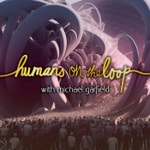History of Philosophy Audio Archive – Détails, épisodes et analyse
Détails du podcast
Informations techniques et générales issues du flux RSS du podcast.

History of Philosophy Audio Archive
William Engels | Podcaster @ https://Patreon.com/HemlockPatreon
Fréquence : 1 épisode/3j. Total Éps: 155

Classements récents
Dernières positions dans les classements Apple Podcasts et Spotify.
Apple Podcasts
🇨🇦 Canada - education
01/01/2025#87
Spotify
Aucun classement récent disponible
Liens partagés entre épisodes et podcasts
Liens présents dans les descriptions d'épisodes et autres podcasts les utilisant également.
See all- https://www.youtube.com/@wonderstruckpod
48 partages
- https://www.youtube.com/@TheAustinSchool
17 partages
- https://www.youtube.com/@mediasanctuary
9 partages
Qualité et score du flux RSS
Évaluation technique de la qualité et de la structure du flux RSS.
See allScore global : 38%
Historique des publications
Répartition mensuelle des publications d'épisodes au fil des années.
#147 - Dzogchen: James Low on Tibetan Buddhism, the Uncontaminated Mind, Developing Clarity and Insight, Overcoming Ego, and Riding the Wave that Never Breaks
vendredi 20 décembre 2024 • Durée 36:27
Come join my Patreon!
https://patreon.com/HemlockPatreon
-//-
James Low's YouTube Page:
https://www.youtube.com/@jameslow
Video Source:
--- Support this podcast: https://podcasters.spotify.com/pod/show/william-engels/support#146 - Moby Dick: Bert Dreyfus on the White Whale, the Origins of American Literature, Ahab's Madness, and Existentialist Themes in the 19th Century
jeudi 19 décembre 2024 • Durée 08:23:40
Come join my Patreon!
https://patreon.com/HemlockPatreon
This is an eight lecture series, delivered in 2010 at UC Berkeley by the philosophy professor and overall great human being Hubert "Bert" Dreyfus as part of a Great Books course.
Enjoy.
--- Support this podcast: https://podcasters.spotify.com/pod/show/william-engels/support#139 - Machiavelli Double Episode: Michael Sugrue & Quentin Skinner on Renaissance Politics, the Philosophy of Ruthlessness, Nihilsm, and Why It Is a Double Pleasure to Deceive the Deceiver
samedi 23 novembre 2024 • Durée 01:15:25
Come join my Patreon!
https://patreon.com/HemlockPatreon
-//-
Original Sugrue Video:
Original Skinner Video:
Enjoy.
--- Support this podcast: https://podcasters.spotify.com/pod/show/william-engels/supportChris Hedges - American Sadism
samedi 1 juin 2024 • Durée 55:53
Advisory: This episode is INTENSE and it is not suitable for children. Discusses violence against women and children as well as warfare and torture.
Chris Hedges is one of my living heroes; to the extent that anyone can tell the truth in this blizzard of lies we are all trying to survive, it's him.
---
Original video here:
https://youtu.be/OGCFVc-5yTM?si=HhqMk3G2tLHg_yqN
Thanks to MediaSanctuary for hosting these talks, it makes a huge difference.
https://www.youtube.com/@mediasanctuary
---
My writing lives here:
https://williamengels.substack.com/
--- Support this podcast: https://podcasters.spotify.com/pod/show/william-engels/supportJudith Herman - Psychological Trauma, Childhood Influences, and Recovery
samedi 1 juin 2024 • Durée 53:59
Judith Herman wrote an incredible book called "Trauma and Recovery" which I would wholeheartedly recommend to everyone.
Advisory: Discusses incest, sexual assault, and PTSD.
---
The original video can be found here:
https://youtu.be/USTKmffoQms?si=mikorNz7weMjdNpu
My thanks to University of California television for providing and maintaining this recording which was first recorded in March 2002.
As always these talks are syndicated for educational and nonprofit purposes in accordance with Fair Use. They are produced ad-free, because I listen to my own stuff on here and like you, I hate ads. They are free, as in libre, and free as in “beer”.
These recordings have been remastered for clarity, ease of listening, and concision and have been downmixed to mono so that they are lighter and easier to stream, wherever you are.
Furthermore my historical and philosophical writing, which is also entirely free is available at my blog, Hemlock, on Substack.
The music of the intro and outro (Bach's Cello Suite No. 1 in G Major, performed by Gregor Quendel) is licensed under non-commercial attribution, and can be found here and has been remixed by me.
Enjoy.
--- Support this podcast: https://podcasters.spotify.com/pod/show/william-engels/supportJonathan Lear - Virtue Ethics, Alasdair MacIntyre, and Psychotherapy
vendredi 31 mai 2024 • Durée 01:26:51
In this talk, Jonathan Lear reviews one of my favorite philosophers, the British virtue ethicist and founder of the Neoareatic movement Alasdair MacIntyre, whose 2016 book Ethics In the Conflicts of Modernity has been hugely influential in my own thinking about how we relate, socially and individually, to the questions about justice, beauty, goodness, and truth that run through our lives.
Professor Lear is a practicing clinical psychoanalyst, moral philosopher, and First Nations scholar and advocate whose work on the Crow Nation, "Radical Hope" I strongly recommend.
---
The original video can be found here, my thanks to the de Nicola Center for Ethics and Culture at the University of Notre Dame for providing and maintaining this recording which was first recorded July 25-27, 2019.
As always these talks are syndicated for educational and nonprofit purposes in accordance with Fair Use. They are produced ad-free, because I listen to my own stuff on here and like you, I hate ads. They are free, as in libre, and free as in “beer”.
These recordings have been remastered for clarity, ease of listening, and concision and have been downmixed to mono so that they are lighter and easier to stream, wherever you are.
Furthermore my historical and philosophical writing, which is also entirely free is available at my blog, Hemlock, on Substack.
The music of the intro and outro (Bach's Cello Suite No. 1 in G Major, performed by Gregor Quendel) is licensed under non-commercial attribution, and can be found here and has been remixed by me.
Enjoy.
--- Support this podcast: https://podcasters.spotify.com/pod/show/william-engels/supportMartha Nussbaum - Upheavals of Thought: Neo-Stoicism and Emotional Cognition
vendredi 31 mai 2024 • Durée 37:25
On March 22, 2005, Martha Nussbaum visited the John Adams Institute to talk about Upheavals of Thought - The Intelligence of Emotions.
For everybody who thinks that philosophy is a stuffy dull science, practiced by unworldly absent-minded professors: Martha Nussbaum isn’t an abstract scientist who occupies herself with the universe and metaphysics. She is in touch with daily life.
The underlying assumption of her ideas is based on human emotions. According to Nussbaum emotions are no irritating uncontrollable upheavals, which we have to master at all cost, but sensible reactions to everything that really matters to us.
For that reason Nussbaum is considered (as) a typical female philosopher, also because she has an open eye for commonplace things, and knows to empathize with all kind of people.
The above was reproduced from a video description.
---
The original video can be found here, my thanks to the John Adams Institute for American Culture in the Netherlands for providing and maintaining this recording, made in 2005.
As always these talks are syndicated for educational and nonprofit purposes in accordance with Fair Use. They are produced ad-free, because I listen to my own stuff on here and like you, I hate ads. They are free, as in libre, and free as in “beer”.
These recordings have been remastered for clarity, ease of listening, and concision and have been downmixed to mono so that they are lighter and easier to stream, wherever you are.
Furthermore my historical and philosophical writing, which is also entirely free is available at my blog, Hemlock, on Substack.
The music of the intro and outro (Bach's Cello Suite No. 1 in G Major, performed by Gregor Quendel) is licensed under non-commercial attribution, and can be found here and has been remixed by me.
Enjoy.
--- Support this podcast: https://podcasters.spotify.com/pod/show/william-engels/supportDeborah Nelson - Ethics Without Empathy: Arbus, Arendt, Didion, McCarthy, Sontag, Weil
vendredi 31 mai 2024 • Durée 30:55
This talk describes the ethics and aesthetics of unsentimentality as practiced by some of the late twentieth-century’s most notable women artists and intellectuals. We will consider what it would mean to have an ethics without empathy even in the face of extreme suffering.
Deborah Nelson's Franke Forum talk is titled “An Unsentimental Education: Arbus, Arendt, Didion, McCarthy, Sontag, Weil." Deborah Nelson is Chair and Professor in the Department of English Language & Literature and the College. Her book: Tough Enough: Arbus, Arendt, Didion, McCarthy, Sontag, and Weil won the Modern Language Association’s James Russell Lowell Prize for Best Book of 2017 and the Gordan Laing Prize in 2019 for the most distinguished contribution to the University of Chicago Press by a faculty member.
The above is reproduced from the YouTube video description.
The original video can be found here, my thanks to the University of Chicago, my alma mater, for providing and maintaining this recording which was first recorded in November 2017.
As always these talks are syndicated for educational and nonprofit purposes in accordance with Fair Use. They are produced ad-free, because I listen to my own stuff on here and like you, I hate ads. They are free, as in libre, and free as in “beer”.
These recordings have been remastered for clarity, ease of listening, and concision and have been downmixed to mono so that they are lighter and easier to stream, wherever you are. If I provide links to books, they are affiliate links, all others are not.
Furthermore my historical and philosophical writing, which is also entirely free is available at my blog, Hemlock, on Substack.
The music of the intro and outro (Bach's Cello Suite No. 1 in G Major, performed by Gregor Quendel) is licensed under non-commercial attribution, and can be found here and has been remixed by me.
Enjoy.
--- Support this podcast: https://podcasters.spotify.com/pod/show/william-engels/supportChris Hedges - Fascism in the Age of Trump
jeudi 30 mai 2024 • Durée 48:19
Chris Hedges explores the cultural, economic, and political forms of fascism that are dredged up by the political phenomenon of Donald Trump's presidency.
Advisory: This presentation is graphic, and contains many detailed descriptions of violence.
---
The original video can be found here, my thanks to Media Sanctuary for providing and maintaining this recording which was first recorded in November of 2017.
As always these talks are syndicated for educational and nonprofit purposes in accordance with Fair Use. They are produced ad-free, because I listen to my own stuff on here and like you, I hate ads. They are free, as in libre, and free as in “beer”.
These recordings have been remastered for clarity, ease of listening, and concision and have been downmixed to mono so that they are lighter and easier to stream, wherever you are.
Furthermore my historical and philosophical writing, which is also entirely free is available at my blog, Hemlock, on Substack.
The music of the intro and outro (Bach's Cello Suite No. 1 in G Major, performed by Gregor Quendel) is licensed under non-commercial attribution, and can be found here and has been remixed by me.
Enjoy.
--- Support this podcast: https://podcasters.spotify.com/pod/show/william-engels/supportJohn Searle - Consciousness as a Problem in Philosophy and Neurobiology [Reupload]
mercredi 29 mai 2024 • Durée 49:28
In this 2014 lecture, famed philosopher of mind John Searle, originator of the "Chinese Room" critique of machine intelligence discusses competing theories that attempt to explain the emergence from/relation of consciousness and matter.
Searle focuses especially on refuting ideas put forward by Nick Bostrom and other AI theorists which suggest that AI can have a consciousness of its own, and that furthermore we should be worried about Terminator scenarios where machines come to life - Searle thinks this is nonsense, at least in the sense that we don't have to worry about machines being "motivated" to do something, since machines possess only the 'syntax' and not the 'semantics' required to make the sort of meaning upon which a mental phenomenon like motivation, intentionality, etc, depend.
---
The original video can be found here, my thanks to Philosophy Overdose for providing and maintaining this recording which was created in 2014 as part of the Patten lecture series.
As always these talks are syndicated for educational and nonprofit purposes in accordance with Fair Use. They are produced ad-free, because I listen to my own stuff on here and like you, I hate ads.
These recordings have been remastered for clarity, ease of listening, and concision and have been downmixed to mono so that they are lighter and easier to stream, wherever you are.
Furthermore my historical and philosophical writing, which is also entirely free is available at my blog, Hemlock, on Substack.
The music of the intro and outro (Bach's Cello Suite No. 1 in G Major) is licensed under non-commercial attribution, and can be found here and has been remixed by me.
Enjoy.
--- Support this podcast: https://podcasters.spotify.com/pod/show/william-engels/support








